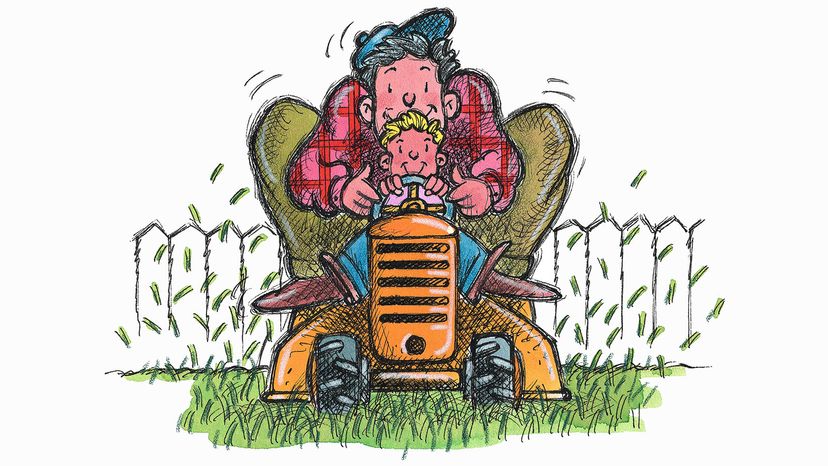
There's a new trend at children's birthday parties these days. Some parents are banning balloons. Not because they're a potential choking hazard. And not because kids inhale the helium. And not even because balloons are really bad for the environment. These parents are nixing balloons to save the children from the disappointment of having one pop or fly away.
Trying to eliminate all grief or trauma before it has a chance to happen — or smoothing what lies ahead to keep children from facing discomfort even in things as insignificant as a popped balloon — is what's become known as lawnmower parenting. And while it may seem like saving kids from heartbreak is a kinder way to parent, removing obstacles before they face them does kids a huge disservice, says parenting expert Dr. Deborah Gilboa. She's founder of Ask Doctor G and author of "Teach Resilience – Raising Kids Who Can Launch."
Advertisement
She says that kids need to have lots of balloons pop to learn to cope with small and large discomfort in order to build resilience.
Lawnmower parenting — aka snowplow or bulldozer parenting — refers to parents who "clear" a path for their children so those bumps in the road, everything from popped balloons to failed exams, are removed or fixed. Their thinking is that a clear path allows their child to move smoothly forward without experiencing real hardship, disappointment or discomfort.
Don't confuse this parenting style with its older cousin, helicopter parenting. While helicopter parents react to their own anxiety and fears for kids by hovering and keeping a bird's eye view of what could happen, lawnmower parents take a more active role in "preparing the world for our kids rather than preparing our kids for the world," Gilboa says. Helicopter parents see obstacles; lawnmower parents get them out of the way.
Advertisement


